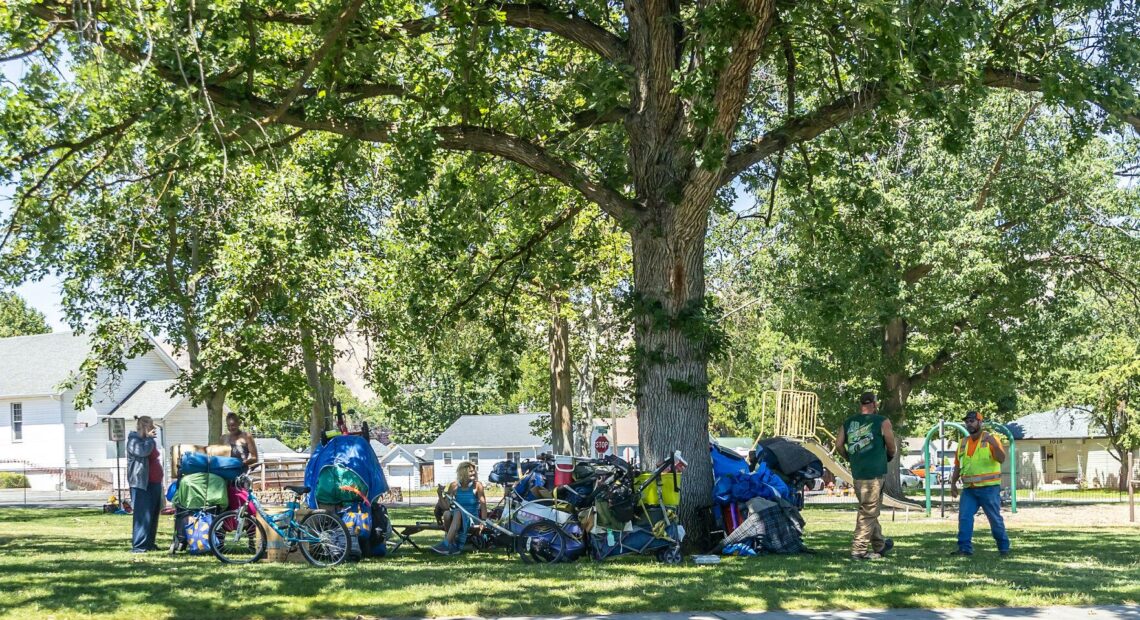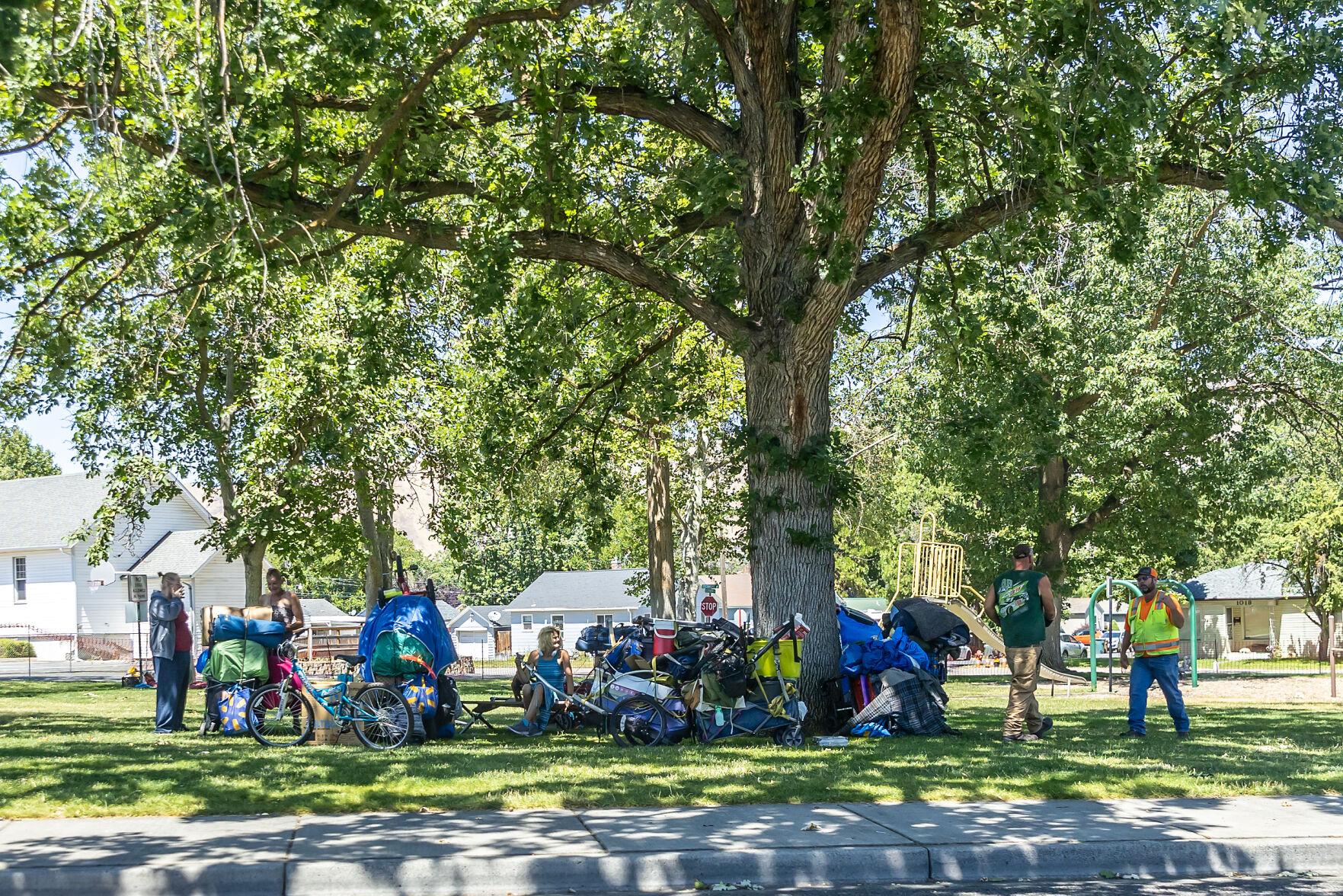
Unhoused Clarkston residents can continue to sleep at city park — for now
Listen
(Runtime 3:52)
Read
Unhoused Clarkston residents say they have yet to hear whether the city will change its camping ordinance following a U.S. Supreme Court decision ruling cities can punish homeless people for sleeping in public spaces.
At a Monday city council meeting, several residents neighboring Foster Park voiced frustrations with some of the unhoused residents who sleep there. They complained of issues including drug use, theft, the dogs some unhoused residents keep, sidewalks getting blocked by items and safety concerns for children.
The city’s attorney, Todd Richardson, said the city cannot change its ordinance 1706, which relates to camping at the park, if it wants to avoid a costly lawsuit.
“Unfortunately, right now my advice to you is you can’t move forward with the change in 1706,” he told the council. “Let’s move as quickly as we can. But we can’t do it today.”
John Wolff is an attorney representing several of those unhoused residents in a lawsuit against the city of Clarkston in relation to its camping ordinance. The city already limits overnight camping to Foster Park between the hours of 9 p.m. and 7 a.m.
“To the extent that the U.S. Supreme Court’s decision has any impact on the case, it only implicates one of the claims,” he said. “My clients have brought several claims against the city of Clarkston.”
Those claims include a federal and state constitutional right to travel, which plaintiffs claim also includes a right not to travel, and a Washington state constitutional right against cruel punishment. The plantiffs also claim they have been deprived of due process guaranteed by both the federal and state constitutions and that the Americans with Disabilities Act has been violated.
“All the other claims remain and we intend to pursue them to the fullest extent of the law,” Wolff said.
Dave Daugherty, who came to the Red Door Kitchen at First Christian Church for lunch following the ruling, said he has housing, but has several friends who are unhoused.
“I don’t think it’s a good thing,” he said. “I think there’s gonna be more crime now, because of it. They just need to find a designated spot and leave ‘em alone.”
Homeless residents have already had to deal with moving from place to place before the Supreme Court ruling, he said.
Harold “Wayne” Harris also came to the church for lunch, and said it was frustrating to see homeless people be moved from one place to another. Harris said he is not unhoused, but has been helping homeless residents over the past several months.
“They’re getting herded around like a bunch of animals in a stockyard or something,” he said.
Linda Beck, one of the volunteer organizers at First Christian Church, said she was unsure if, or how, the ruling might affect the church’s volunteer activities, but was busy trying to organize more volunteers as the church prepares to open its doors as a cooling center.
The church will open as a cooling center on days when temperatures reach 100 degrees or more, Beck said. They are currently looking for more people to stay at the church during the afternoon when the cooling center is open.
Carol Johnson is a volunteer at the church’s Red Door Kitchen. She said she wished more members of the community who are not unhoused would come for meals at the church and get to know the unhoused residents.
“I think they’re afraid they’re all dope addicts or something,” she said. “You get to know these people, they’re just regular old people. Some are down on their luck. Some choose that life, some don’t. It could be me tomorrow, being there.”
Rikki Nail-Hart, who came for lunch, has been on and off the streets over the past few months. She said she does think something needs to change.
“There’s got to be a spot that’s not right smack dab in the middle of town at a children’s park,” she said. “It’s a catch-22, whatever the city decides to do.”
















